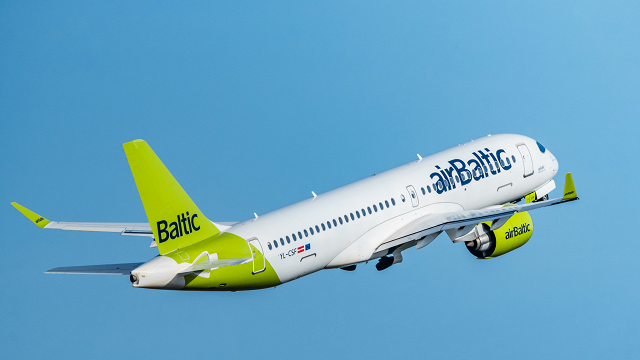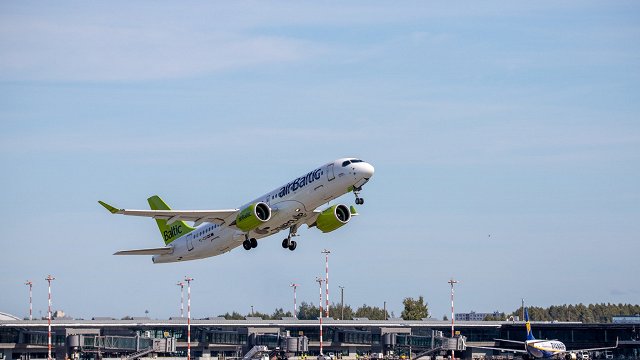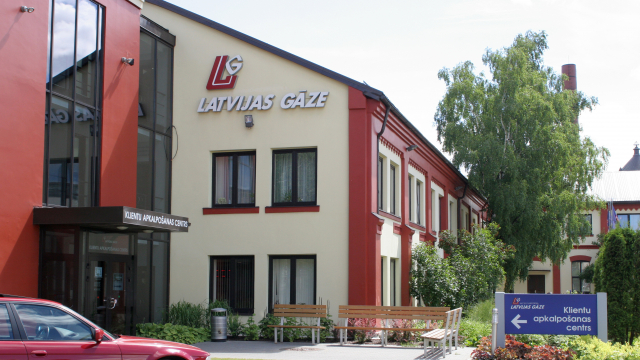LTV: 2019 was record breaking year for the airBaltic with 5 million passengers and more than 500 million euros' revenue. From the perspective of the 2019 – how would 2020 and 2021 have looked if there had not been Covid-19?
We showed in January and February of 2020 that we were going for new records – both months were well above 2019. airBaltic was going for another record year, according to our business plan. And if Covid-19 wouldn't come, very likely airBaltic would exceed expectations in 2020, but that’s it. Covid-19 came and now we are living with reality.
What does this reality look like?
The reality was that we stopped flying for 62 days and that had a big impact on our airline. We had to cut capacity at the beginning of 2020 by 40%. We reduced our personnel by 40% as a first step. And then we decided what can we do to stay and not lose the airline because nobody know what will develop and we focused on staying first and than we focused on revising our product. We took a big decision strategically to have only one fleet – only the Airbus A220 and then we said “Ok, let’s start as much as we can” and that is what we did in 2020 – we flew when we where able to fly and that is what we are doing today – we are trying to increase flying and ensuring the connectivity for the Baltic states. What has happened in 2020 – airBaltic has proven that without airBaltic the connectivity to Baltic states would collapse because we kept at all times a basic connectivity of mail and cargo, but also for passengers. And still today we are flying every day more than 1,000-2,000 passengers and it will be more now. Even in very, very tight lockdown times in 2020, the connectivity had to be maintained for several reasons.
How many flights are operated right now – how many active destinations?
Today we have 30 destinations, so we are flying more because we already are in the summer schedule, in winter it was a bit less. We expect to fly even more as more and more destinations we take back into the schedule. Of course there is the restriction that you should not fly unless you have solid reason, but after one year of restrictions, more and more people and businesses have to go to another place for very different reasons and therefore you need to fly. Because to certain places you can’t just drive and flying is very safe because of HEPA filters. We had no infections on board an aircraft last year. We flew 22,000 flights last year in Covid times and not one of our employees got infected with Covid onboard an aircraft and that shows how safe it is to be on an aircraft.
At the beginning of March you mentioned that airBaltic is losing 3.5 million euros per week – what makes this loss?
As we are here at the airport, you see the aircraft parked outside. We have 25 Airbus. One of them cost around of 75 million dollars, (list price) just one. The aircraft we are sitting in, the cost of this aircraft is 75 million dollars. We are financing or leasing them and every month we have to pay the list rates. That’s the biggest part – to pay for our aircraft every month and of course we have 1,000 people employed, because these aircraft need to be maintained. We are sitting on an aircraft and this aircraft can go for a flight later today, but it has to be maintained so our technicians – 300 technicians taking care that all aircraft are ready to fly.
These machines are very sophisticated assets and you can't just park it like a car and come back after two weeks. You need to work on aircraft every day, you need to do certain things, even if it doesn't fly. And when we don’t fly, we have higher costs than when we fly because you need to take more care to the aircraft on the ground, but we also need, when we fly, to do de-icing, we need to sell tickets, we are still selling every day tickets for the future, we have IT systems, we have our headquarters – the rent. airBaltic is like a micro-cosmos – it’s a company which was doing in 2019 half a billion in revenue already and it’s a really big company so we lose 3.5 million in cash per week while we cannot fly.
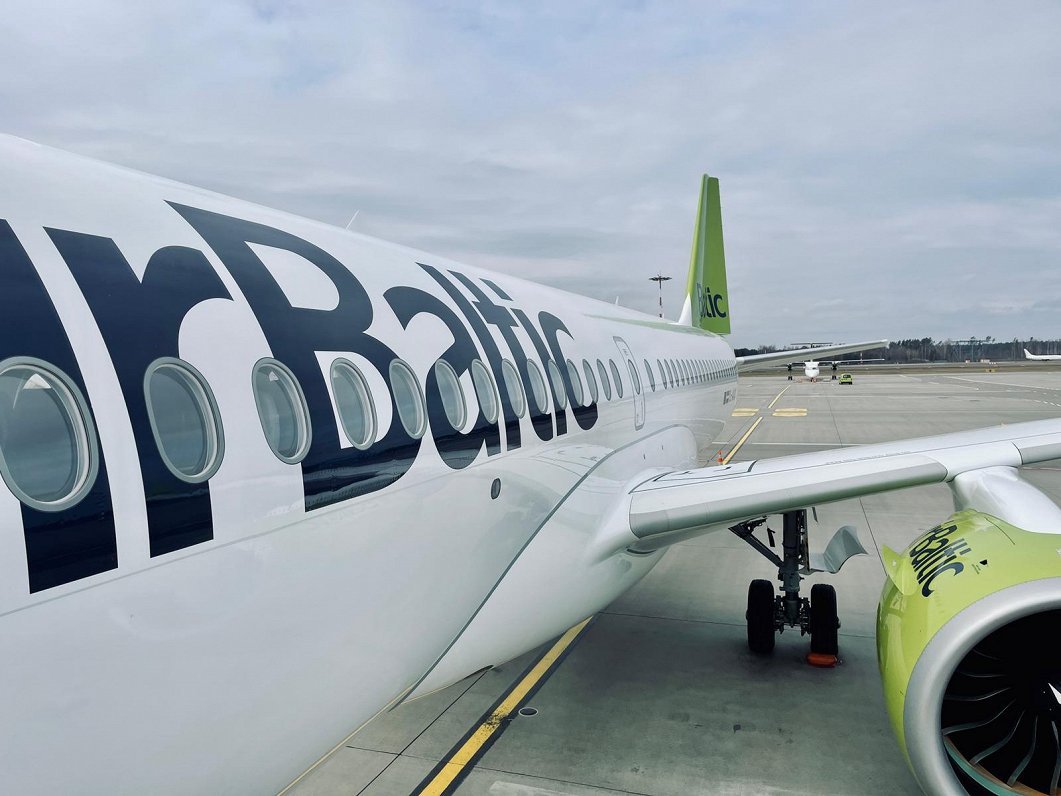
There is a saying that plane makes money when it is up in the air. You mentioned that there was more than 60 days when all the fleet was on ground. During these 60 days, there where any thoughts about bankruptcy, anything like that?
No! Not at all, because airBaltic came from very strong position already into the crisis, because we had issued the bond and capital markets was 200 million in 2019. That was there for the future growth of airBaltic because it was successful company at that time and what we needed to ensure is that Covid times will be over. Also today knowing that it took one year, much longer than anybody thought, but there will be end of this Covid crisis and we will see normal life returning. And the normal life needs this airline maybe even more to rebuild the Latvian economy because the damage to economy is there. And every day it gets more. So therefore you need to have the airline also after the crisis to bring back the economy.
Therefore we were never discussing any bankruptcy, but of course we were looking for what would it cost if you would not have the airline, what would be the impact, but as we have so many assets in airBaltic – we own some of the planes, we generate revenues, we pay big taxes and we have a very strong brand name so there is no way that we think about bankruptcy. We need to manage in these difficult times to not lose more money and that’s what we try to do.
How full are flights at the moment?
It’s very different. For example we started to fly to Tbilisi again and we had more than 100 passengers, but we also have flights where there are only 11 passengers, maybe in one direction and then maybe back there are 40 or 50. Overall we have a load factor of around of 30%. So we always have around 40 on each aircraft, but some aircraft are full and some – less, but overall we are earning money. We need to earn to cover the cost of fuel and costs of crew, landing charges, de-icing, all of these costs we can cover by flying at around 30% load factor.
Talking about crew, many people lost their jobs during this first wave and first year of Covid-19. What’s the situation in airBaltic?
700 people in airBaltic have lost their jobs in this pandemic in the last year and unfortunately until today we can’t re-employ these people, but yes, for 700 people – they do not have job any more because we do not have work for them. We still keep 1,000 people. We have less airplanes today, but to fly these airplanes we need to have people in training – crew, pilots, technicians and therefore we are keeping them. And we will be flying more and more towards the summer and then hopefully we can also employ some of the people we had to unemploy.
Last march there was news that Martin Gauss will redirect his salary to help the company in the fight against the virus. Does all your salary still go to the company’s budget? And same question about airBaltic's board members – their salaries were cut by 20%, if I’m not mistaken.
No! I said, as long as we not flying at all, only repatriation flights. For two months I did not get a salary, the whole management reduced their salary reduced salary by 20% for six months. And the board members cannot receive bonus payments even if we perform because the EU Commission said that you cannot pay out bonuses while the state can help the airline. But of course I take a salary every month, it’s reduced, but I still have one. I did not take salary for two months in solidarity with employees who had to lose their jobs and also to show that I’m very serious about this airline and getting it out of the crisis.
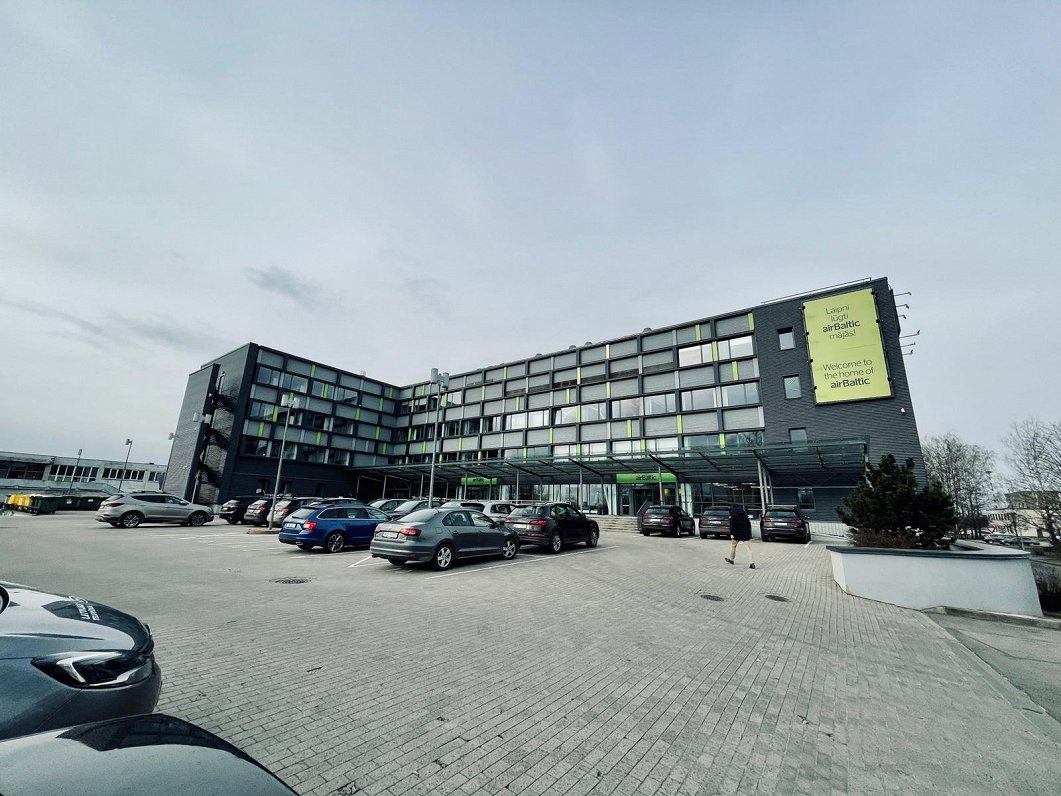
There is a saying that you come out of a crisis stronger than you entered. Can we say the same thing about airBaltic?
Yes, we will definitely from a strategy point of view be more advanced. Already today we only fly A220, we have no other aircraft type. All of them are identical so it makes this much easier, because we don't need to think how many seats does the aircraft have, which route can it fly. Our crew need to be trained only on one aircraft type. If we buy spare parts, we just need to focus on one airplane type. Same thing with maintenance personnel. So the simplicity of only flying this type of aircraft makes it much easier for us in future and also we have less aircraft. Today we have 25 aircraft, before the crisis we used to fly with 40 and now we will go out of crisis and we will be adding more aircraft. This year 7 aircraft will be added to go back to levels we had and then we will be beyond this because we will have in total 50 of these aircraft in the order. We also changed our concepts because now you can fly any route with any aircraft that also makes sales easier and we can reach short haul – we can fly to Liepāja, Tallin and Vilnius, but we can also fly to Dubai and we can use the same aircraft. So airBaltic will be much stronger and we have the right size aircraft coming to come out this crisis.
In future Riga airport will have a Rail Baltic connection. Is there any thought about passenger integration – from train to plane and vice versa?
It’s an actually one of the best projects coming for airBaltic because the train will stop in front of the terminal and it’s like 200 meters from train to plane and all the passengers who have difficulties to come from different cities in the Baltics, they can come to Riga airport and just enter an airplane and go somewhere. So we will see the boost with Rail Baltica in 10 years time when it comes, we will see a boost for connectivity from the Baltics to the plane. And the train will not go to Dubai, so people will come from the city on a high-speed train and they will be entering one of our planes and fly to some of the destinations. So it will be a perfect combination and it’s something we are really waiting for when Rail Baltic comes to Riga airport.
Right now air travel is one of safest means of transport because of air ventilation systems on the planes. More and more people are getting vaccinated all across world. Does airBaltic have any thought that only vaccinated persons could use its services?
We will not announce this today because it would be discriminating against people who can’t get a vaccine – you cannot get a vaccine, I can't get a vaccine, because there is not enough available. So you will disadvantage people saying that you can come on board when you have a vaccine. In the long term future of course it could be that you say you need to have a vaccine to be able to do this or that, but what we work on today is to have a green pass that the EU wants or the IATA travel pass where you can demonstrate that you have a negative test or a vaccination or you had Covid... But today to announce that only when you've had a vaccine you can fly is something that governments need to decide. We as an airline will go for whatever regulation is there but we don’t want to discriminate against anybody who has not get their vaccine yet.
